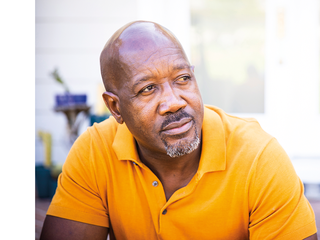Hodgkin lymphoma prognosis
In general, the long-term prognosis (what’s likely to happen in the future) is very good for people with Hodgkin lymphoma. For most people, treatment leads to a cure, even if they are diagnosed at an advanced stage.
What is my prognosis?
Everyone is different, so your hospital team are the best people to ask about your prognosis. They know you and your individual situation and will be in the best position to answer your questions.
Your prognosis and treatment options will depend on a range of things, including the stage of lymphoma, your age and general health.
In general, the earlier Hodgkin lymphoma is diagnosed the better the prognosis. But it’s important to know that even if you have advanced stage Hodgkin lymphoma when you are diagnosed, there is still a good chance treatment will be successful and you will be cured.

Worried or have questions about prognosis?
We can talk you through it and support you to have conversations with your doctor.
Favourable and unfavourable Hodgkin lymphoma
If you have early-stage Hodgkin lymphoma (stage 1 or 2) your doctor might say you have favourable or unfavourable disease. This is based on several things, including:
- how many lymph nodes are affected
- whether you have enlarged lymph nodes in your chest
- whether you have fever, night sweats or unexplained weight loss (called B symptoms)
- your age
- whether your blood tests show high levels of inflammation.
If you have unfavourable Hodgkin lymphoma you may need slightly more treatment, but it is still highly curable.
Your doctor can tell you more about whether you have favourable or unfavourable Hodgkin lymphoma, and how this affects your prognosis and treatment.
Hodgkin lymphoma survival rates
Some people want to know about survival rates when they are diagnosed with Hodgkin lymphoma, and others don’t. Survival rates are general statistics based on large groups of people. They can never tell you what will happen for you as an individual.
Survival rates usually talk about five-year survival. This means that the stated percentage of people diagnosed with a condition are likely to survive for at least five years. They don’t mean that those people will only live for five years, many people live much longer than that. Five years is just a time period doctors use to compare different types of cancers and the success of different treatments.
If you want to know about survival rates for Hodgkin lymphoma, click on the headings below.
These are overall survival rates and they do not take age into account. Ask your doctor if you want to know how these survival rates relate to you.
9 in 10 people (90%) diagnosed at stage 1 survive for at least 5 years.
Around 9 in 10 people (90%) diagnosed at stage 2 survive for at least 5 years.
Around 8 in 10 people (around 80%) diagnosed at stage 3 survive for at least 5 years.
More than 7 in 10 people (more than 70%) diagnosed at stage 4 survive for at least 5 years.

I've just been told I have blood cancer
Find answers about what happens next and coping with emotions and everyday life.
